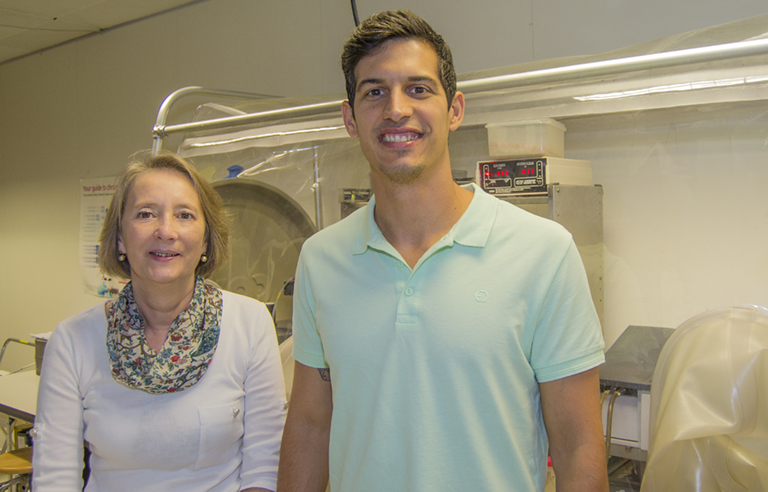How do bacteria know they have had enough?
Oeiras, 10.07.2018
Haem is a molecule fundamental for all living organisms. In humans, haem confers the red colour to haemoglobin containing cells that transport oxygen, while in bacteria it is used as a cofactor in a large number of proteins with essential biological functions that sustain growth and survival. Due to its importance, almost all organisms have the capacity to synthesize haem endogenously. Moreover, several bacterial pathogens also utilize specialized systems that “steal” haem from haemoglobin of the infected host. However, too much haem is toxic to cells and is thus fundamental to have a mechanism that inhibits haem synthesis when the external uptake is active. Such mechanism has just been revealed in Lígia Saraiva Lab and published today in Molecular Microbiology.
“We describe how the human pathogen Staphylococcus aureus deals with this conundrum. The protein-protein interaction that occurs between IsdG, one of two S. aureus haem monooxygenase enzymes that belong to the external haem uptake system, and ferrochelatase, the penultimate enzyme of the S. aureus haem biosynthetic pathway, inhibits the endogenous formation of haem. This seems to be a general mechanism as IsdG homologues appear widespread in many pathogens, and we propose that this crosstalk reconciles their high haem requirements with the paradox that excess of haem is lethal”, according to Lígia Saraiva, corresponding author.
This work was developed with colleagues from Instituto Superior Técnico (Portugal), University of Kent (UK) and University of Vienna (Austria).

Original Paper
Molecular Microbiology 2018 doi.org/10.1111/mmi.14060
Marco A.M. Videira, Susana A.L. Lobo, Liliana S.O. Silva, David J. Palmer, Martin J. Warren, Manuel Prieto, Ana Coutinho, Filipa L. Sousa, Fábio Fernandes and Lígia M. Saraiva*







